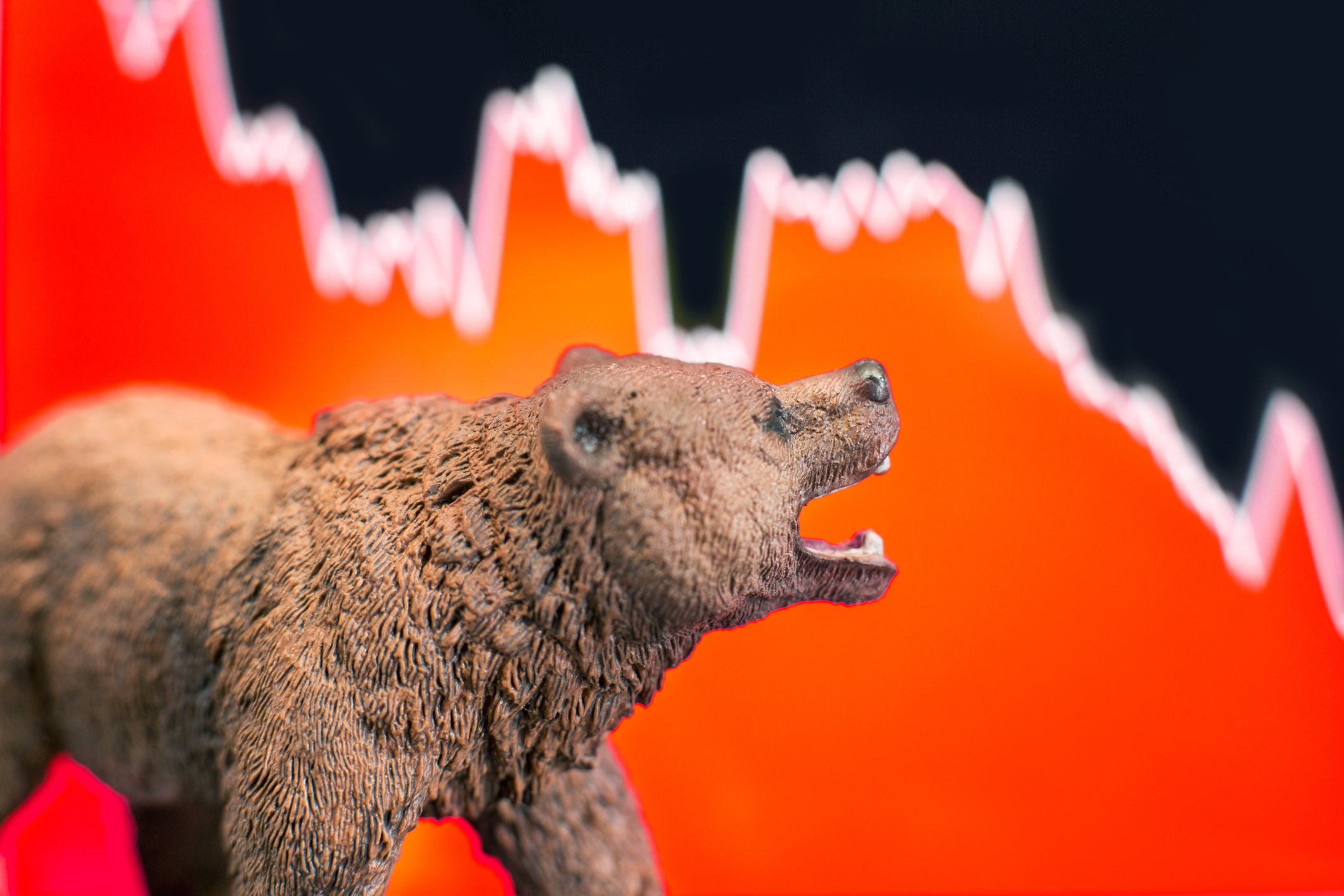Berkshire Hathaway (NYSE: BRK-A)(NYSE: BRK-B) CEO Warren Buffett is perhaps the greatest investor of our time. Berkshire's book value has grown nearly 1.1 million percent since 1965, and Buffett himself has seen his net worth soar to $82 billion from just $10,000 in the mid-1950s.
Today, "Buffett's portfolio" -- the affable name given to Berkshire Hathaway's nearly $218 billion in invested assets -- holds 47 securities from a variety of industries and sectors.

Berkshire Hathaway CEO Warren Buffett at his company's annual shareholder meeting. Image source: The Motley Fool.
A vast majority of these companies deliver on the qualities we'd expect to find in the companies Buffett picks out for the long term. For instance, Berkshire's largest holding, Apple, has incredible branding power and a significant U.S. smartphone market share, and is a leader in smartphone and services innovation.
Then there's Bank of America, Buffett's second-largest holding, which also has excellent branding power and has been a moneymaking machine now that it's put litigation expenses in the rearview mirror and reduced its operating expenses.
However, there are a handful of Buffett stock holdings that just make you scratch your head in disbelief.
Johnson & Johnson
Just prior to the Great Recession, healthcare conglomerate Johnson & Johnson (JNJ +1.02%) was a mainstay in Berkshire's portfolio. The Oracle of Omaha had built a nearly 49-million-share position in the company and was, at one time, J&J's fourth-largest shareholder.
But subsequent to the Great Recession, Buffett headed for the exit. By 2012, Berkshire had pared down its holdings to only 492,000 shares, with 327,100 shares of Johnson & Johnson stock remaining in the portfolio today. That's about $42.7 million in market value, if you're curious.
The big question is: Why does Buffett continue to hang onto such a nominal position in Johnson & Johnson?

Image source: Getty Images.
Mind you, I believe J&J to be a great company, with each of its three operating segments offering something that the other two don't bring to the table. Consumer healthcare products is growing the slowest of any division, but it generates predictable cash flow and strong pricing power. The medical device segment is growing modestly at the moment, but it offers a long-tail growth opportunity for an aging population. And, lastly, pharmaceuticals generates the bulk of J&J's margins, although brand-name therapies only have a finite period of exclusivity.
However, the Johnson & Johnson of 2019 looks very little like the J&J of 2007. Back when Buffett was a major stakeholder in the first quarter of 2007, pharmaceutical revenue made up 41% of total sales. As of the second quarter of 2019, 51% of total sales came from pharmaceuticals. Though this is a higher-margin segment, Buffett has long had an aversion to owning pharmaceuticals, mainly because of the extra research that's required for keeping tabs on drug trials.
With J&J no longer as diversified as it once was, it's a wonder why Buffett continues to hold this stock.
All airlines, save for Southwest
Arguably a more baffling move than hanging onto a relatively small position in Johnson & Johnson for years is Buffett's recent fondness for the airline industry. Currently, Berkshire Hathaway owns $1.3 billion worth of American Airlines Group (AAL +2.30%), $4.2 billion worth of Delta Air Lines (DAL +2.02%), $2.9 billion worth of Southwest Airlines (LUV +3.12%), and $2 billion worth of United Airlines (UAL +3.27%). These positions respectively represent stakes of 9.8%, 10.9%, 10%, and 8.5% in each company.
These airlines were added in bulk by Buffett in the latter half of 2016. This was shortly after the price of crude oil went into an absolute free fall, pushing down the price of refined petroleum products. For airlines, it meant the loss of ticket-pricing power, but also a significant reduction in their primary expense, jet fuel. As long as crude prices remain tame and the U.S. economy keeps plugging along, airlines should offer reasonably strong profits and attractive valuations, relative to the broader market. At least, that's my thesis if I'm in Buffett's shoes in 2016.

Image source: Getty Images.
But here's the thing: Buffett has been highly critical of airlines in the past. In Buffett's annual shareholder letter in 2007, he had this to say about the airline industry:
The worst sort of business is one that grows rapidly, requires significant capital to engender the growth, and then earns little or no money. Think airlines. Here a durable competitive advantage has proven elusive ever since the days of the Wright Brothers. Indeed, if a farsighted capitalist had been present at Kitty Hawk, he would have done his successors a huge favor by shooting Orville down.
Yet, Buffett has sunk more than $10 billion (close to 5% of his portfolio) into a generally low-margin business model that's struggled to survive recessions in the past -- not to mention, most airlines are lugging around a lot of debt. American Airlines has $29.3 billion in net debt, followed by United Airlines and Delta Air Lines at $15.8 billion and $15.4 billion, respectively. Southwest is perhaps the one exception to the rule, with $570 million in net debt and a history of staying profitable, even during recessions.
Why Buffett owns American Airlines, Delta Air Lines, and United Airlines is a mystery to Yours Truly.
Teva Pharmaceutical Industries
Another Buffett holding that's a real head-scratcher is brand-name and generic-drug producer Teva Pharmaceutical Industries (TEVA +2.04%). Although, this holding has some semblance of an explanation, with one of Buffett's investing managers appearing to have opened the position and subsequently adding to it.

Image source: Getty Images.
Suffice it to say that Teva Pharmaceutical doesn't meet the qualities you'd typically look for in a Buffett stock. In fact, it's almost easier to list what's gone right for Teva over the past two years than to tackle what's gone wrong. In no particular order, Teva has:
- Contended with persistent generic-drug price weakness;
- Eliminated its dividend and substantially lowered its adjusted earnings per share guidance;
- Witnessed top-level executive turnover;
- Paid a settlement regarding bribery charges in a handful of overseas countries;
- Is dealing with more than $26 billion in net debt;
- Is facing a myriad of opioid lawsuits for most U.S. states; and
- Had its lead brand-name drug, Copaxone, lose exclusivity and face generic competition.
Keeping in mind that Buffett isn't a fan of keeping up with clinical trials, or of companies facing large legal liabilities, it's a wonder that Teva remains in Buffett's portfolio. But, as noted, it appears to have been added by one of Buffett's team rather than the Oracle of Omaha himself.
For what it's worth, I do believe Teva is a rebound candidate and that many of its issues are overblown or more than factored into its valuation. Nevertheless, this is going to be a long-winded turnaround and is, for now, a blemish on Buffett's otherwise illustrious stock-picking career.













